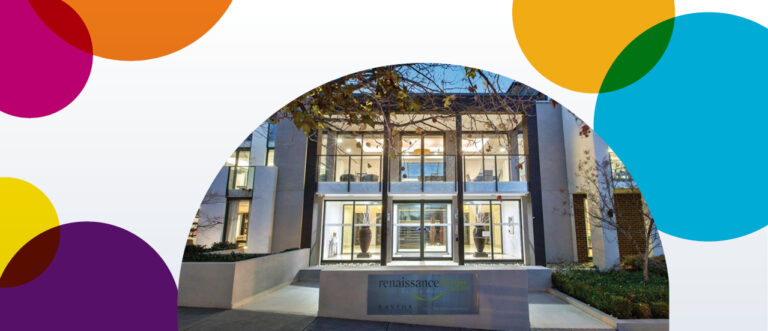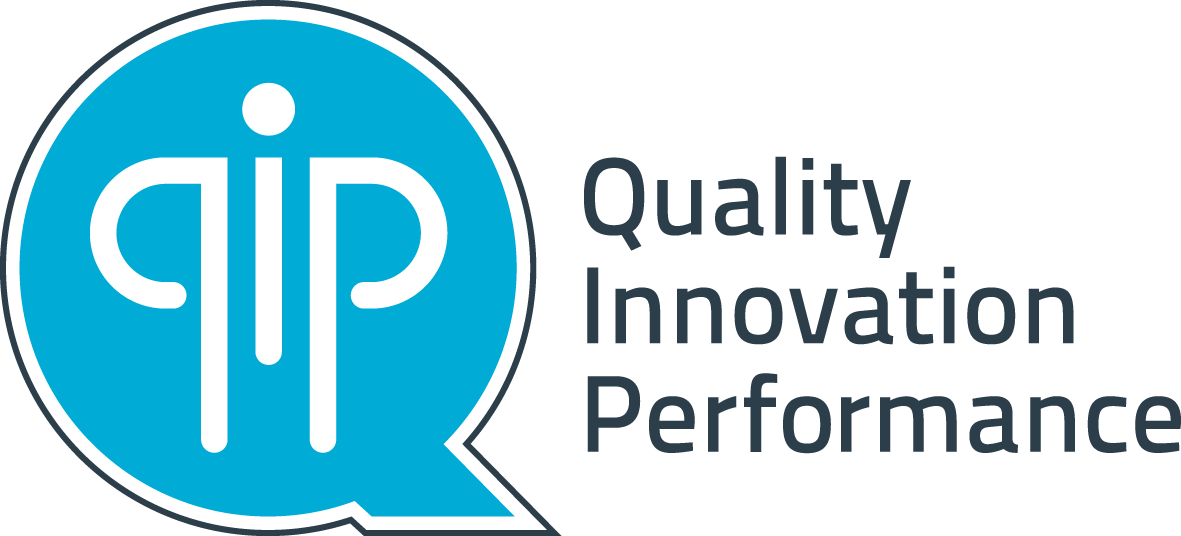Latest news

The Impact of ARVAS Accreditation on Renaissance Living Surrey Hills
In this Q&A article, we explore the practical impacts of Australian Retirement Village Accreditation Scheme (ARVAS) accreditation on Renaissance Living Surrey Hills, through an engaging interview with David Scott, Business Development Manager at Ravida.
From enhancing organisational efficiency to boosting resident satisfaction, the ARVAS accreditation process has driven notable improvements within the organisation. David provides a firsthand account of how the accreditation aligns with their core values, fosters continuous improvement, and shapes risk management strategies.
He candidly shares significant achievements and hurdles encountered throughout the accreditation journey, emphasising the collaborative relationship with QIP. David also provides valuable suggestions for enhancing QIP’s support for ARVAS-accredited organisations, highlighting the importance of shared knowledge and collective learning.
This interview offers an authentic portrayal of Renaissance Living Surrey Hills’ steadfast dedication to excellence and continuous improvement in independent living care.
“Rather than viewing accreditation as a daunting task, we embraced it as an opportunity for growth and improvement”
What are the most significant improvements you have observed for your organisation as a result of the ARVAS accreditation process?
The implementation of better documented processes has significantly enhanced our company’s level of organisation and efficiency. With the village manager’s role shared among three individuals with diverse backgrounds and experiences, tasks are often divided based on individual strengths.
However, having clear processes in place now enables all managers to confidently undertake various tasks when needed. This includes responsibilities such as programming access FOBs, sending out AGM invitations, and conducting resident inductions, which were previously siloed. As a result, our team feels more empowered and capable in handling a wider range of duties, ultimately contributing to a more cohesive and effective operational environment.
What does ARVAS accreditation mean to your organisation, and how does it align with your mission and values?
Continual improvement is a fundamental concept that can be applied across various facets of life, including sports, personal development, and business. It acknowledges the constant changes within the environment, including residents, staff, suppliers, and attitudes. By establishing regular review periods, organisations can effectively assess their performance against goals and adapt proactively to evolving needs. This approach minimises reactionary decisions and facilitates the analysis of feedback and data to refine strategies for optimal outcomes. While perfection may never be attainable, consistent analysis and adjustment enable progress towards achieving the best possible results.
How has ARVAS accreditation directly enhanced the quality of care and services provided to your residents?
Our recent resident satisfaction survey yielded the highest participation rate and most positive results to date, indicating that residents recognise our commitment to listening and acting on their feedback. While many of our initiatives may not have an immediate visible impact, their cumulative effect over time is significant. For instance, our efforts in optimising supplier contracts and cost control have enhanced efficiency and cost-effectiveness, enabling us to allocate resources to expand services. Additionally, we prioritised minimising the impact of CPI increases on residents’ fees this year, demonstrating our dedication to financial prudence while maintaining service quality.
Could you share specific benefits that your organisation has realised since achieving accreditation under ARVAS standards?
I believe that accreditation has helped consolidate information and streamline its accessibility, leading to improved communication within our organisation. As a result, our team members feel more well-rounded in their roles, fostering better collaboration and efficiency. This has enabled us to achieve more in shorter time frames.
In what ways has the accreditation process influenced your organisation’s commitment to continuous improvement and best practices in independent living care?
We’ve developed a broader understanding that circumstances are ever-changing, requiring us to adapt accordingly. What may have been effective two years or even just 12 months ago may no longer be optimal. It’s important to challenge the status quo and recognise that decisions made in the past were not necessarily wrong, but rather, newer solutions may now offer better outcomes. We’re also becoming more inclined to experiment with new ideas, embracing the mindset that if something works, that’s fantastic! And if not, we’ll learn from it and refine our approach, taking the successful elements forward into something new.
Can you share any success stories or notable achievements that have resulted from the accreditation process thus far?
As mentioned earlier, a prime illustration of this is our focus on supplier contracts and cost control. By implementing robust policies and conducting regular reviews, we’ve enhanced efficiency and cost-effectiveness behind the scenes. While these efforts may not be immediately apparent to residents, they’ve enabled us to allocate resources more effectively. This, in turn, has allowed us to expand services in areas where they are most needed.
It underscores the reality that many initiatives, both desired by residents and necessary for operations, require financial resources. Without sufficient funding, our ability to respond and meet residents’ needs would be severely limited. Having adequate financial resources empowers us to deliver on our commitments and enhance the overall quality of our services.
Can you describe any notable challenges or obstacles your organisation has faced throughout the accreditation journey, and how you have addressed them with QIP’s assistance?
Loani, our Client Liaison Officer, has been excellent to work with. Initially, we were quite apprehensive about the accreditation process, feeling like it was a high-stakes exam similar to Year 12 finals. However, we took proactive steps to familiarise ourselves with the system by researching similar programs in other industries and seeking advice from colleagues familiar with QIP principles. Drawing from my wife’s experience in nursing, where accreditation is routine, and my friend’s experience in education, we gained valuable insights that helped ease our concerns.
As we became more informed, we adopted a more open approach, engaging in constructive conversations with Loani. Rather than viewing accreditation as a daunting task, we embraced it as an opportunity for growth and improvement. This shift in mindset allowed us to collaborate effectively with Loani, finding tailored solutions to meet our specific needs. By fostering open communication, we established a more collaborative relationship, enabling us to navigate the accreditation process with confidence.
What strategies do you have in place to ensure the sustainability of the positive changes and progress achieved during the accreditation process?
The focus should be on the process rather than the specific changes implemented thus far. Over the past 18 months, we’ve introduced multiple adjustments, often implementing three or four changes within a single area. While some of these changes may have been experimental or initial “teething” adjustments, made to gauge effectiveness and gather feedback, it’s foreseeable that the rate of change may gradually decrease over time.
However, it’s crucial to acknowledge that the necessity for change remains constant. Without ongoing adaptation, we risk being unable to effectively respond to the evolving challenges and opportunities that arise. Therefore, while the pace of change may naturally evolve, the commitment to continuous improvement must endure to ensure our organisation remains adaptable and capable of continual enhancement.
Can you share any specific measures or data that reflect the improvements in quality of care and services as a result of ARVAS accreditation?
As mentioned previously, our survey results reflect a high level of resident satisfaction. In a Village of 43 apartments, we had 21 out of the 31 respondents indicating they are Extremely or Very Satisfied. Notably, only one respondent expressed dissatisfaction, attributable to a specific issue which we are actively addressing.
In addition to our survey outcomes, our financial results are also noteworthy. Despite economic pressures, we have managed to increase resident fees at a rate lower than inflation while simultaneously enhancing our services. This has enabled us to offer additional and improved services such as cleaning and gardening, underscoring our commitment to maintaining affordability without compromising on quality.
How has ARVAS accreditation influenced your organisation’s approach to risk management and safety protocols for residents, and can you provide examples of enhanced safety practices?
While there may not be tangible changes to photograph, safety remains a top priority at our village. We’ve dedicated significant effort to refining our Disaster Management Plan, revising it four times to ensure it aligns with the unique needs of our building and residents.
Moreover, in response to residents’ heightened concerns about security, we are actively reviewing the “Residential Apartment Security Assessment for Owners Corporation Committee” published by Victoria Police. This reflects our commitment to addressing residents’ priorities and enhancing overall safety measures.
Our proactive approach is further evidenced by a recent survey, primarily focused on sales inquiries, which also solicited feedback on residents’ top three aspects of living at Renaissance. The overwhelming response indicating a sense of security underscores our residents’ trust in our efforts to maintain a safe environment.
This Q&A session with David Scott sheds light on the positive impact of ARVAS accreditation on Renaissance Living Surrey Hills and highlights the organisation’s commitment to continuous improvement and resident satisfaction.
Undertaking accreditation for the first time can seem challenging, but comprehensive support is available. To find out more information on accreditation to the Australian Retirement Village Accreditation Scheme (ARVAS) Standards, view our standards page or contact our team.


